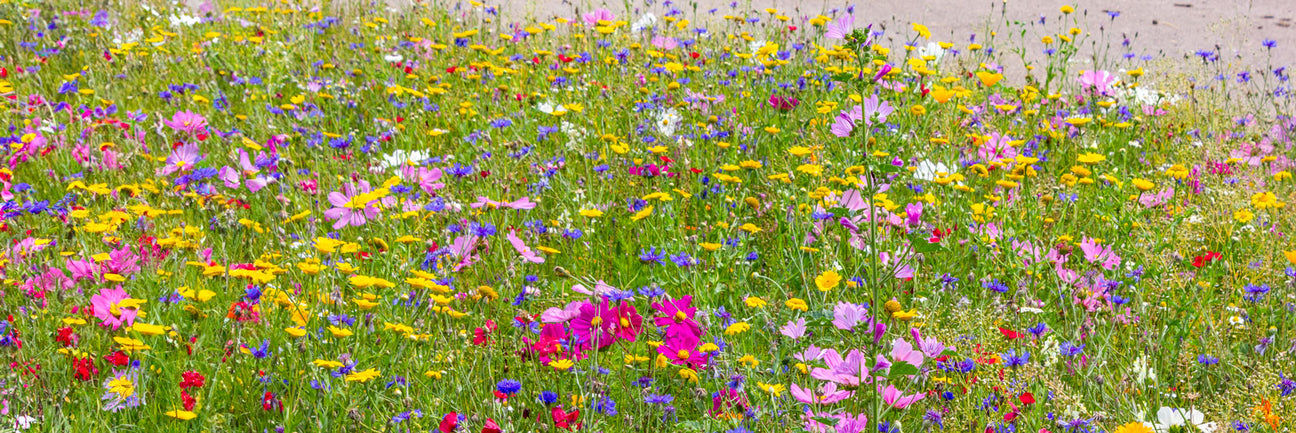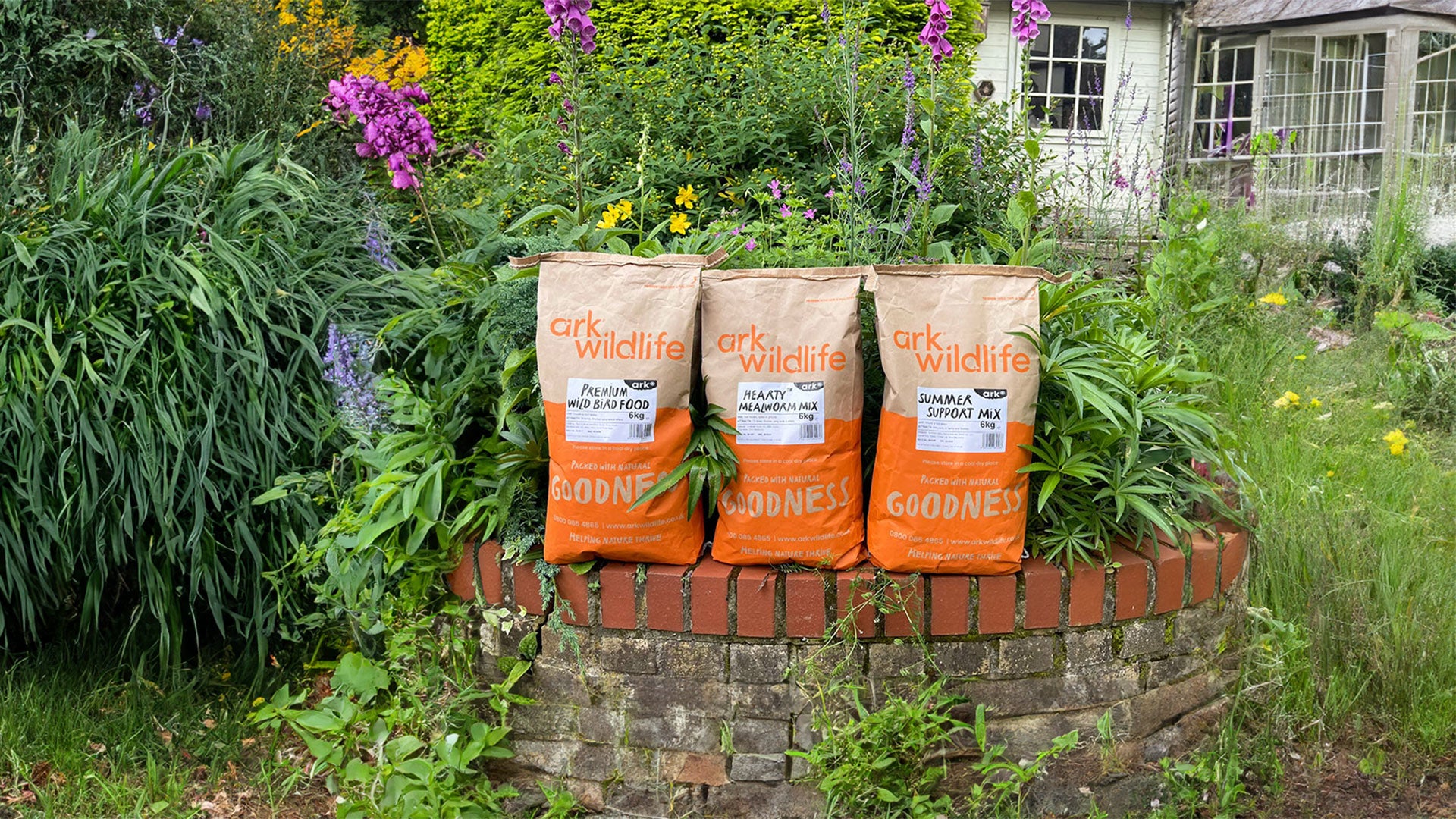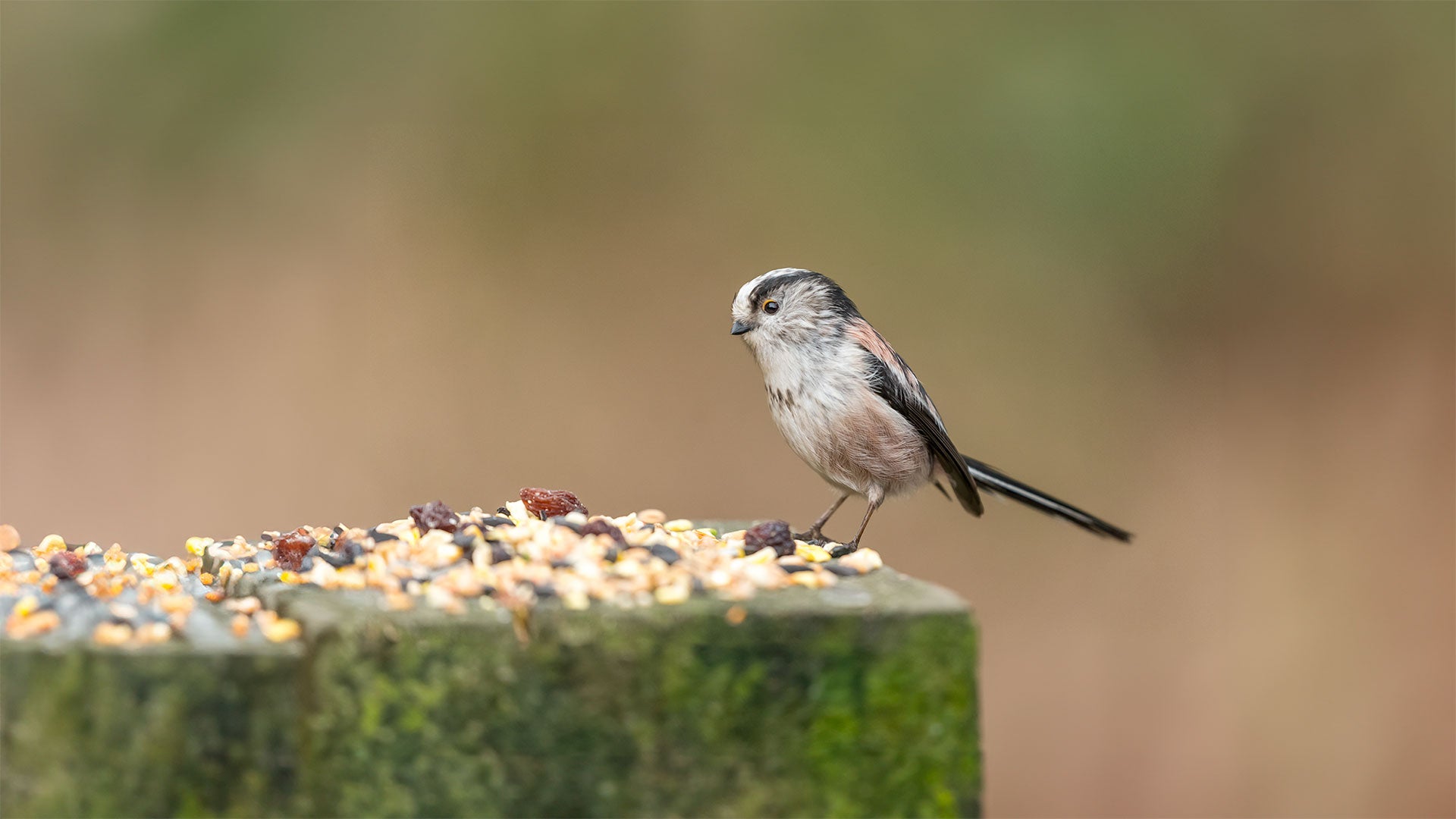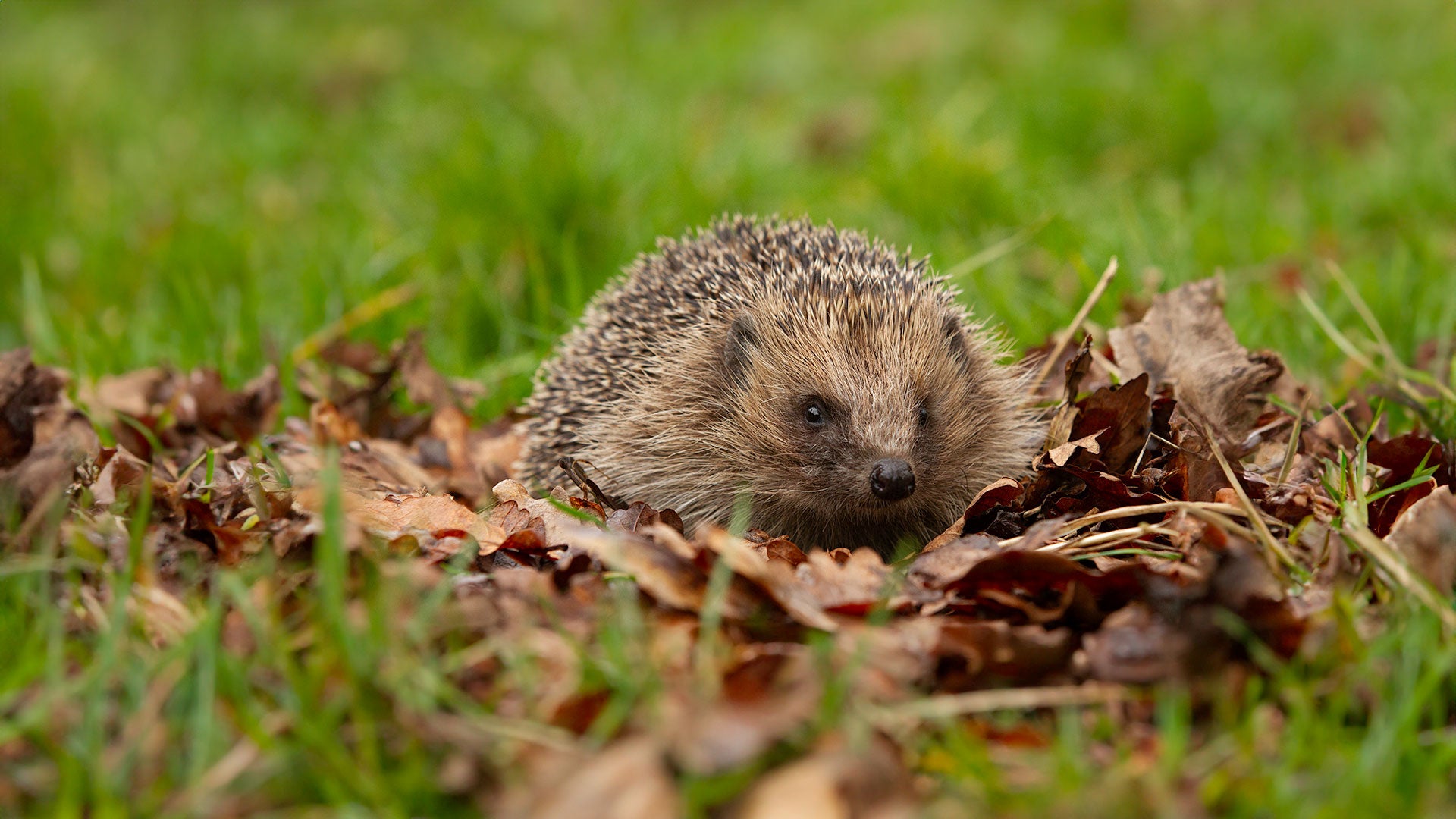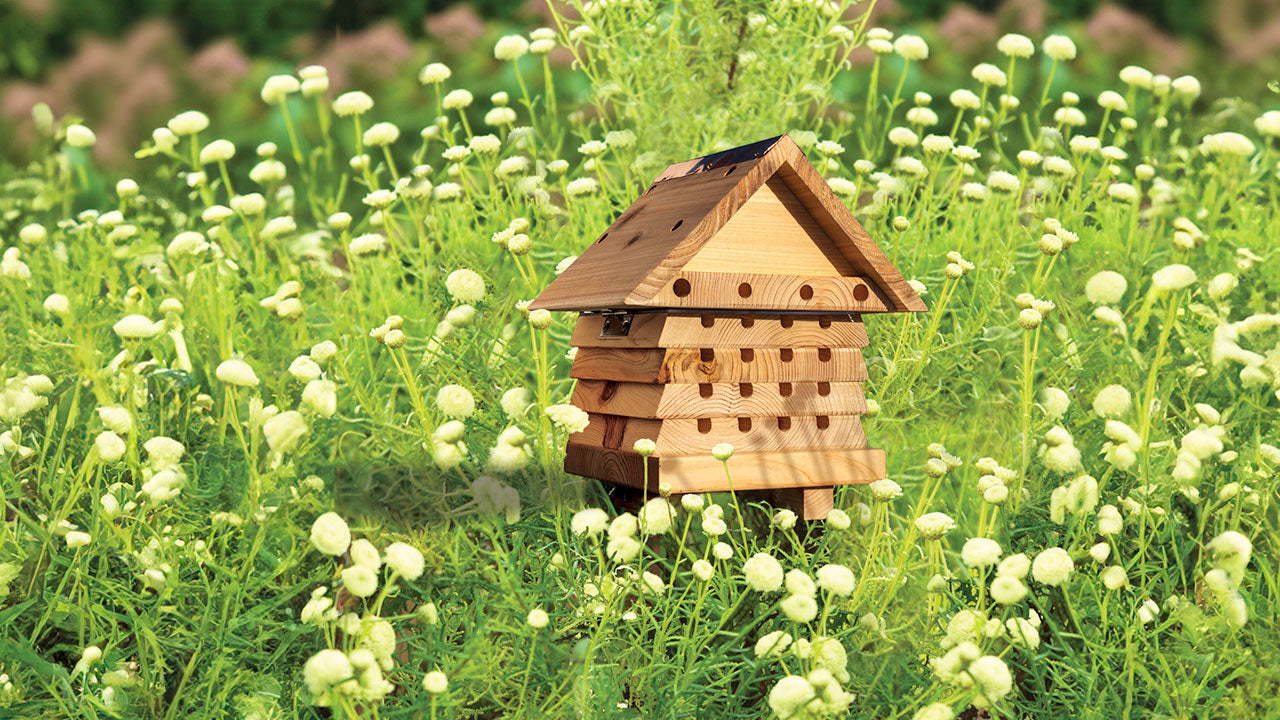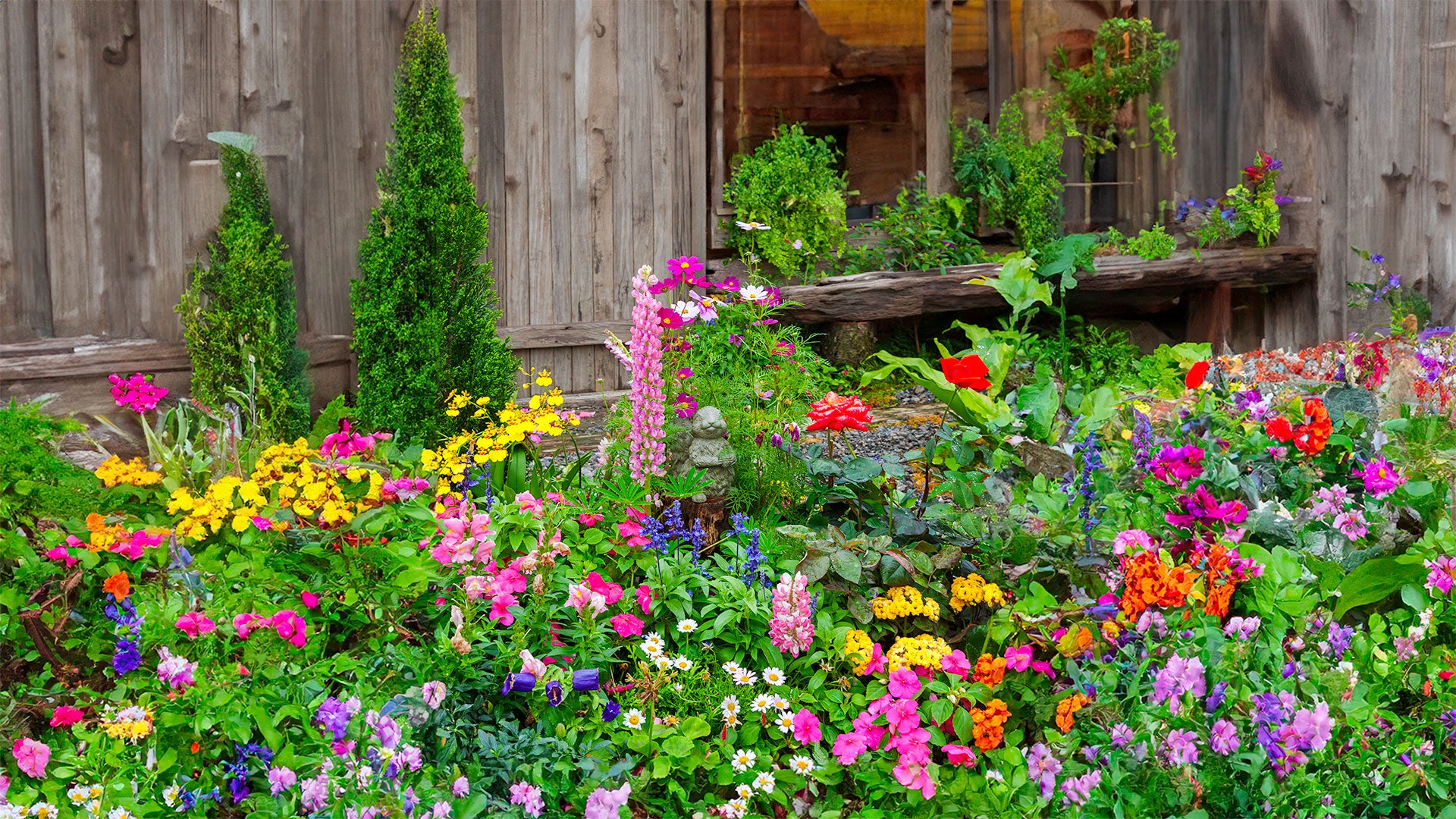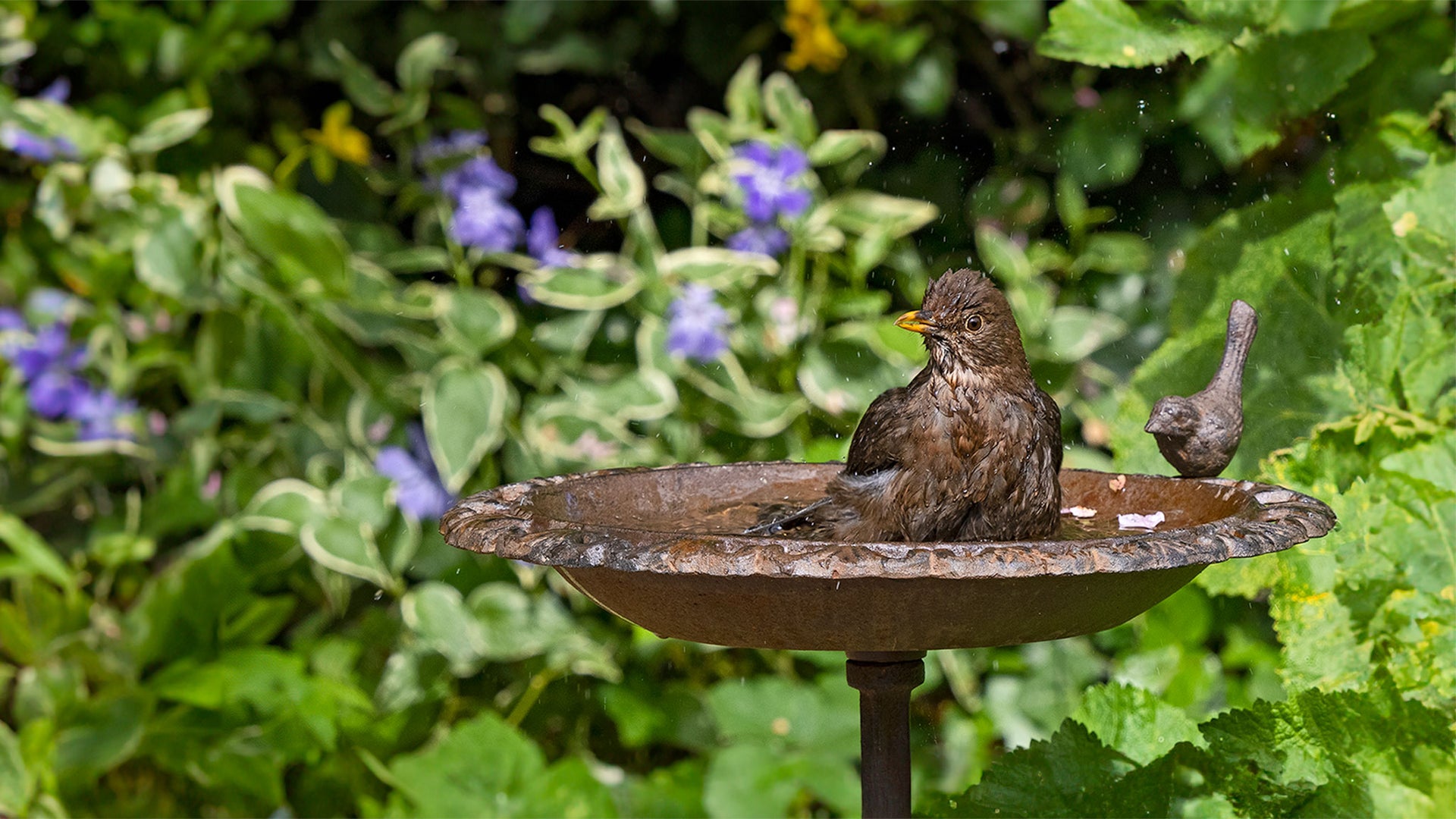Sustainability & Ethics at Ark Wildlife
Not Just Sustainable—Regenerative.

At Ark Wildlife, sustainability isn’t a buzzword—it’s who we are. Since 1991, we’ve been leading the way in sustainable, ethical business practices, not just minimising harm but actively working to regenerate the natural world.
The UK is one of the most nature-depleted nations on Earth. That’s why we don’t just sell products that help wildlife—we challenge the status quo, innovate, and push boundaries to ensure every aspect of our business makes a positive impact.
We don’t follow trends. We set them.
What We’ve Done—And Continue to Do
- Pioneers in sustainable packaging: We packed our bird food in paper sacks from day one—long before sustainability was mainstream
- Industry firsts: We introduced sugar cane packaging to the UK in 2017, leading the charge for greener alternatives
- Circular economy champions: Our plastic recycling scheme has been running since 2010, ensuring waste doesn’t just disappear—it gets reused
- Recycled plastic done right: We use 100% recycled PE bags because they genuinely reduce waste—even if they don’t look as polished as virgin plastic
- Carbon-neutral digital footprint: Our website and data centre run on 100% carbon-neutral energy
We Hold Ourselves Accountable
No business is perfect. Sustainability is a journey, not a destination—but we don’t make excuses. We constantly challenge ourselves to find better, smarter, and greener ways to operate.
We believe in transparency, integrity, and action. Every decision we make, from sourcing to shipping, is guided by our commitment to wildlife, the planet, and the people we serve.
Packaging with Purpose

- Ark Wildlife foods are packed in either paper sacks or 100% recycled plastic—because function matters as much as form
- Ethical partnerships: Some products arrive pre-packaged, but we work closely with suppliers to uphold our high standards
- Eco-friendly shipping: We use recyclable cardboard cartons, sealed with paper tape and natural water-activated gum
- Nothing wasted: Internal protective packaging is either reused from inbound goods or internally recycled on-site
Warehousing, Offices & Technology

- Investing in renewables: We’re actively upgrading insulation and renewable energy sources to move closer to full sustainability
- Energy efficiency: 100% of our lighting is now low-energy LED
- Carbon-neutral online presence: Our website and data centre are fully carbon neutral, proving sustainability extends beyond the physical world
Our Promise
Sustainability isn’t just a policy at Ark Wildlife—it’s our responsibility. We challenge convention, invest in innovation, and take real action every single day.
Because helping wildlife starts with helping the planet.
Corporate Social Responsibility - Environmental Policy - Equality & Diversity Policy - Modern Slavery Statement - Sustainability Actions
FAQ's
Here are answers to some of the most frequesnt questions we're asked. If you still have a question for us, please don't hesitate to get in touch by phone, email, or contact form.
Why doesn’t everyone use 100% recycled plastic bags?
Recycled plastics lose transparency. Many suppliers don’t like the slightly ghosted or cloudy look of 100% recycled plastic but we think it's a small price to pay.
Why don’t you use polypropylene sacks for your mail order food?
While polypropylene sacks are cheap and strong, they are not easy to recycle without specialist facilities. Additionally, many are printed and laminated making recycling even more difficult.
Is paper tape better than plastic sticky tape?
We use reinforced gummed paper tape for our parcels, also known as water-activated tape (WAT). Gummed paper tapes are the only tapes available that are 100% recyclable & biodegradable and therefore environmentally-friendly.
The adhesive coated to the kraft paper is a vegetable glue based upon potato starch which is completely soluble in water. No solvents are used in its manufacture and the gum breaks down readily in recycling processes. Our reinforced WAT tape has embedded fiberglass strands, making it much more resistant to tearing and better suited for securing our heavier parcels. Ensuring a strong, reliable seal is essential to keeping our packages intact during transit. The paper on reinforced WAT is still recyclable, and the fiberglass component is filtered out during the recycling process, therefore making this a much better option plastic or PVC tapes.
What is sugar cane plastic?
Sugar cane plastic is a bio-based plastic that is created using renewable plant-based materials. Sugar cane plastic requires little energy to produce and for every 1 kilo of sugar cane plastic produced, 3 kilos of CO2 are removed from our atmosphere.
Is sugar cane plastic recyclable?
Sugar cane plastic is readily recyclable as it is chemically the same as PE. Recycled sugar cane plastic will be reused in 100% recycled plastic.
Why do you send all your orders out in cardboard boxes?
Cardboard cartons allow us to ensure goods arrive at your door in good condition. In addition, it allows us to use less paper in the food sacks, reducing the overall weight of packaging.
Are your paper sacks 100% recycled?
Paper sacks cannot contain 100% recycled material because the wood pulp shortens with use. Having a small percentage of virgin pulp (from sustainable forestry) reduces the overall weight of the sack while retaining integrity.
Are your cardboard boxes 100% recycled?
All paper pulp deteriorates with reuse and cartons cannot currently be made from 100% recycled wood pulp (but we’re working on this). But recycled carboard can be turned into many other useful items (like toilet roll cores) and use 90% less water and 50% less electricity than new pulp.
